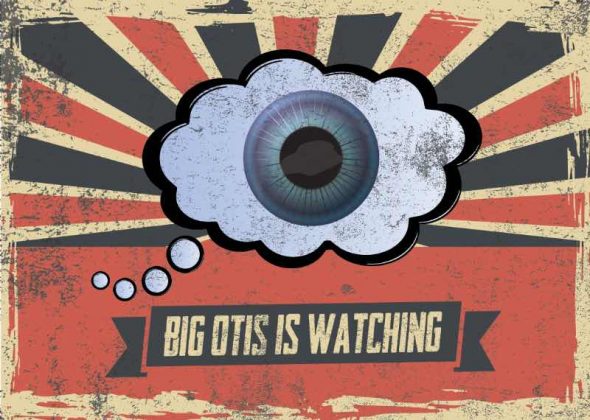In the wake of Donald Trump’s inauguration as U.S. president, sales of George Orwell’s classic dystopian novel Nineteen Eighty-Four skyrocketed. Did Americans sense the coming of an authoritarian state so thoroughly conformist that it verged on totalitarian? Did they realize they had already let the mechanisms of corporate surveillance into their homes? Did they worry about the inevitable onset of never-ending war?
The Overthinking It Book Club returns to answer these questions and more, as we dive deep into the strangely familiar world of the story and follow our everyman hero Winston as he navigates the murky waters of loyalty, individuality, doublethink, and thought crime.
The Book Club comes as four MP3 files, one for each section of the novel and a final one discussing the cultural influence and contemporary relevance of the novels. Stream or download each episode and listen at your computer, in your car, or on the go.
Episode Summaries
Book 1
In our first episode, we discuss the world the novel lays out, the meaning of totalitarianism, why calling things “Orwellian” without defining what Orwellian means may be meta-Orwellian, and some differences between Winston’s world, where you are forced into surveillance, and ours, where we opt in willingly. (Isn’t that right, Alexa?)
Book 2
We consider the structure of this part very carefully, split between a love story and a political science textbook. We talk about the character of Julia, and we wonder why on earth this novel is so often assigned in high school.
Book 3
We try to follow Winston as he comes to understand the party from the inside, as it were. What does the party want? Why do they reveal their plans so straightforwardly? What is the meaning of the ending? And hey, why is this novel called Nineteen Eighty-Four after all?
The Cultural Impact of Nineteen Eighty-Four
We wonder why it’s important to read the book, and whether we need it Now More Than Ever™. Is it useful to resist creeping authoritarianism? We discuss how many of Orwell’s ideas have entered the culture as products (voice transcription; screens that watch you) and technologies of thought (doublespeak, the idea of “Big Brother”). And we talk about cultural artifacts—ads, works of art—that have felt the indelible influence of the novel.

